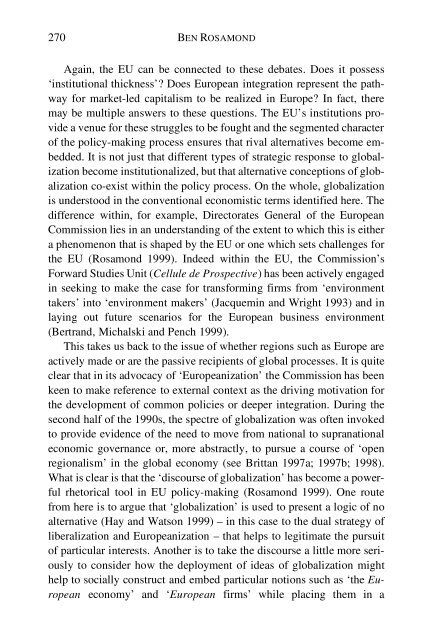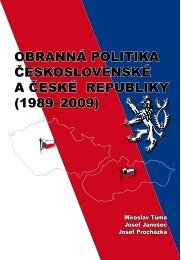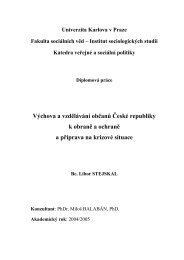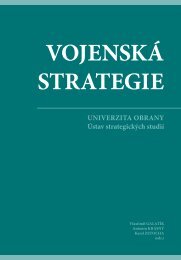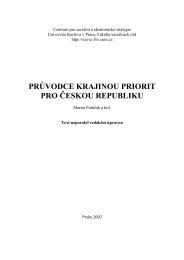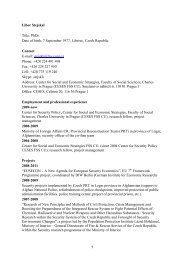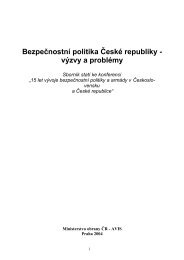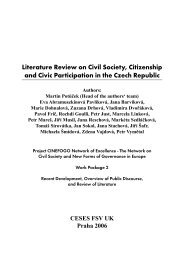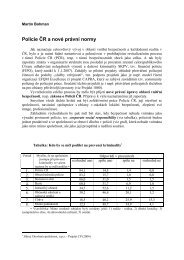Review Article: Globalization and Europeanization
Review Article: Globalization and Europeanization
Review Article: Globalization and Europeanization
Create successful ePaper yourself
Turn your PDF publications into a flip-book with our unique Google optimized e-Paper software.
270 BEN ROSAMOND<br />
Again, the EU can be connected to these debates. Does it possess<br />
‘institutional thickness’? Does European integration represent the pathway<br />
for market-led capitalism to be realized in Europe? In fact, there<br />
may be multiple answers to these questions. The EU’s institutions provide<br />
a venue for these struggles to be fought <strong>and</strong> the segmented character<br />
of the policy-making process ensures that rival alternatives become embedded.<br />
It is not just that different types of strategic response to globalization<br />
become institutionalized, but that alternative conceptions of globalization<br />
co-exist within the policy process. On the whole, globalization<br />
is understood in the conventional economistic terms identified here. The<br />
difference within, for example, Directorates General of the European<br />
Commission lies in an underst<strong>and</strong>ing of the extent to which this is either<br />
a phenomenon that is shaped by the EU or one which sets challenges for<br />
the EU (Rosamond 1999). Indeed within the EU, the Commission’s<br />
Forward Studies Unit (Cellule de Prospective) has been actively engaged<br />
in seeking to make the case for transforming firms from ‘environment<br />
takers’ into ‘environment makers’ (Jacquemin <strong>and</strong> Wright 1993) <strong>and</strong> in<br />
laying out future scenarios for the European business environment<br />
(Bertr<strong>and</strong>, Michalski <strong>and</strong> Pench 1999).<br />
This takes us back to the issue of whether regions such as Europe are<br />
actively made or are the passive recipients of global processes. It is quite<br />
clear that in its advocacy of ‘<strong>Europeanization</strong>’ the Commission has been<br />
keen to make reference to external context as the driving motivation for<br />
the development of common policies or deeper integration. During the<br />
second half of the 1990s, the spectre of globalization was often invoked<br />
to provide evidence of the need to move from national to supranational<br />
economic governance or, more abstractly, to pursue a course of ‘open<br />
regionalism’ in the global economy (see Brittan 1997a; 1997b; 1998).<br />
What is clear is that the ‘discourse of globalization’ has become a powerful<br />
rhetorical tool in EU policy-making (Rosamond 1999). One route<br />
from here is to argue that ‘globalization’ is used to present a logic of no<br />
alternative (Hay <strong>and</strong> Watson 1999) – in this case to the dual strategy of<br />
liberalization <strong>and</strong> <strong>Europeanization</strong> – that helps to legitimate the pursuit<br />
of particular interests. Another is to take the discourse a little more seriously<br />
to consider how the deployment of ideas of globalization might<br />
help to socially construct <strong>and</strong> embed particular notions such as ‘the European<br />
economy’ <strong>and</strong> ‘European firms’ while placing them in a


